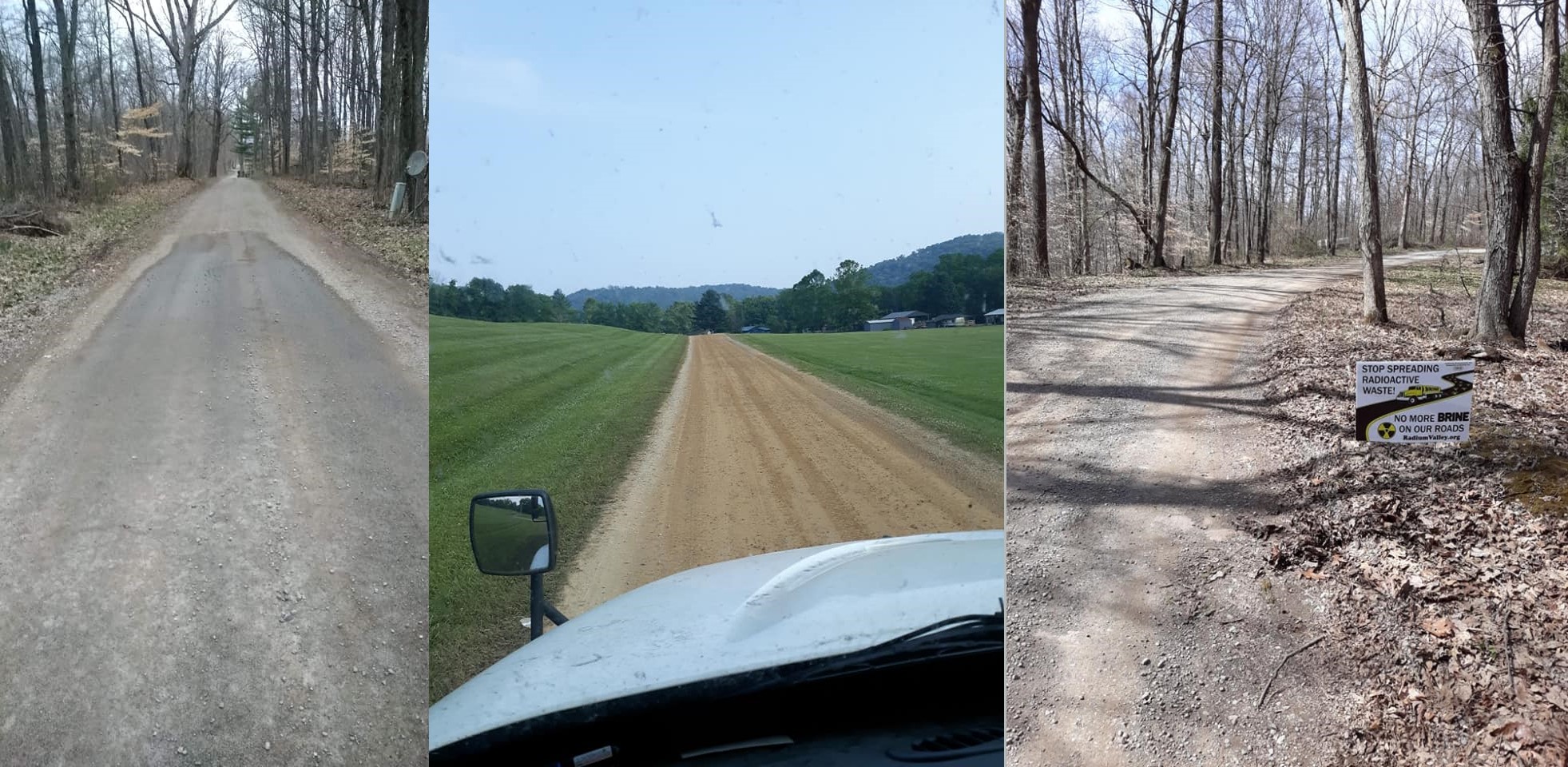For the third time in as many years, Ohio Beyond Dirty Fuels activists have helped delay a bill that would expand the use of radioactive oil and gas waste on roads. The team is part of the Ohio Brine Task Force (“brine” being what the fossil fuel industry calls the radioactive liquid waste), a coalition of groups fighting to keep the waste off the roads.
The Ohio Department of Transportation already allows radioactive oil and gas waste to be spread on some roads for dust suppression and ice melting. The waste contains the radioactive metal radium in the form of Radium 226 and Radium 228, which can severely affect the health of people who touch, drink, or inhale it, and even cause cancer. It also accumulates in roadside soil and runs off roadways into streams.
This latest legislation in the state house, H.B. 272 and S.B. 171, would’ve further deregulated the brine industry by removing the current inadequate standard, which requires the reporting of where the waste has been spread. “If they’re successful, we would never be able to track it,” explained Shelly Corbin, a Beyond Dirty Fuels representative in Ohio.
According to Corbin, the legislation appeared to be on a fast track for passage by the committee and headed to the House floor for a vote before the summer recess. Thankfully, the members of the Ohio Brine Task Force again used their voices to educate the public and legislators on why using radioactive oil and gas waste on roads is dangerous.
The Ohio Beyond Dirty Fuels team focused on news outreach and member and supporter activation to stop the bills. They landed several news stories featuring concerned citizens, educated state legislators, and sent letters to the editors of local papers.
The Brine Task Force sent a letter to the Ohio Department of Natural Resources (ODNR) director pointing out the dangerous nature of this legislation and requesting that they make public the agency's concerns. Their work got ODNR Director Mary Mertz to formally speak out against the bills: “HB 282/SB 171 does not ensure the protection of public health and safety or the environment,” she wrote in a public letter.
The bill’s delay is great news for now, but the work is far from over. “The fossil fuel energy industry has a stronghold on many Ohio legislators,” said Corbin. “We expect this bill will come back again after the summer recess.”
